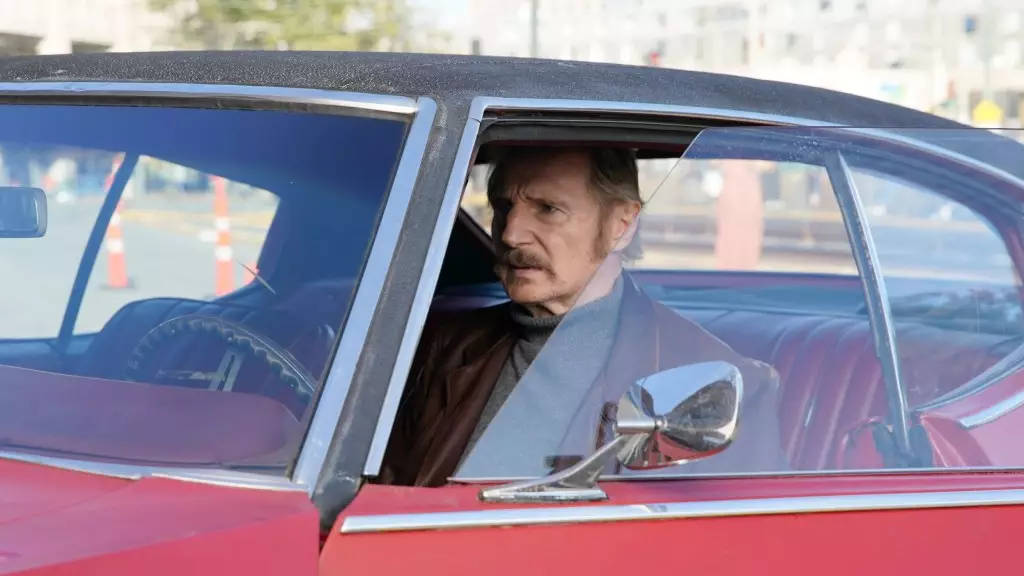Liam Neeson’s latest endeavor, “Absolution,” tries to traverse the age-old path of redemption, a theme that has been explored in numerous films over decades. Directed by Hans Petter Moland and written by Tony Gayton, the film presents the story of an aging gangster, played by Neeson, grappling with his past and attempting to reconcile with his estranged daughter, Daisy. With a terminal diagnosis hanging over him like a dark cloud, the narrative seeks to pose important questions about morality, family, and the possibility of change. However, the execution feels more like a pre-packaged formula driven by clichés than a fresh take on the topic.
The premise is rooted in a narrative familiar to audiences: a deadbeat dad’s last-ditch effort to atone for his past misdeeds. Neeson’s character, referred to only as ‘Thug,’ attempts to right the wrongs of his criminal past, but the plot unfortunately relies heavily on predictable tropes. As he ventures through this journey of self-discovery, the film hints at deeper societal issues such as crime, poverty, and familial love but never dives deeply enough into these themes, leaving them more like background elements than central motifs.
Supporting Characters: A Missed Opportunity
The supporting cast features some notable actors, including Ron Perlman as the antagonist and Yolonda Ross in a meaningful role, yet their talents appear to be squandered on one-dimensional character portrayals. The narrative seems hesitant to explore the complexity of these characters, opting instead to utilize them as mere plot devices within Neeson’s journey. For instance, Daisy’s struggles as a single mother and stripper, although integral to her character, come across at times as lazy attempts to evoke sympathy rather than genuine explorations of hardship.
Compounding these issues, secondary characters representing marginalized demographics like sex workers and LGBTQ individuals are relegated to superficial roles, lacking depth and authenticity. One cannot help but feel that their narratives are sidelined, reducing potentially rich stories to mere catalysts for Thug’s redemption arc. A missed opportunity arises in the depiction of Thug’s son, who died of a heroin overdose, as this subplot hints at a wealth of emotional depth yet is abandoned too soon—an unresolved point in an already diluted narrative.
A Lack of Emotional Resonance
While there are promising elements to the film, including beautiful cinematography capturing the essence of Boston, they fail to compensate for the shortcomings in narrative structure and emotional engagement. Moments intended to tug at the heartstrings often fall flat; for instance, the strained relationship between Thug and his daughter never truly evolves. Their encounters, filled with tension, culminate in a tepid exchange that resolves nothing more than throwing money at her struggles posthumously.
The film aspires to tackle themes of human trafficking—a serious issue that could provide significant commentary—yet resorts to clichéd portrayals of victims and perpetrators without the substance to create a meaningful dialogue. Thug’s eventual decision to rescue one woman feels like an afterthought rather than a deeply felt conviction. As audiences, we are left feeling more puzzled than enlightened, witnessing yet another string of movie tropes rather than authentic representation.
Despite its promising cast and the potential for a multifaceted story, “Absolution” ultimately falters under the weight of its own unoriginality and shallow characterizations. The film endeavors to weave a complex tapestry of crime, redemption, and familial ties, but it ends up presenting a predictable and unremarkable plot. In their pursuit to create a resonant narrative, the filmmakers have instead leaned too heavily on tired tropes and inadequate character development.
In a cinematic landscape thriving on innovation, “Absolution” doesn’t quite hit the mark and is unlikely to leave a lasting impression. Instead of engaging with the rich emotional potential of its characters and themes, it settles for mediocrity—a disservice to both its audience and the compelling issues it touches upon. For viewers searching for depth in their cinematic experience, look elsewhere—this film fails to reclaim its past and, by extension, demanding a place in the modern film narrative.
